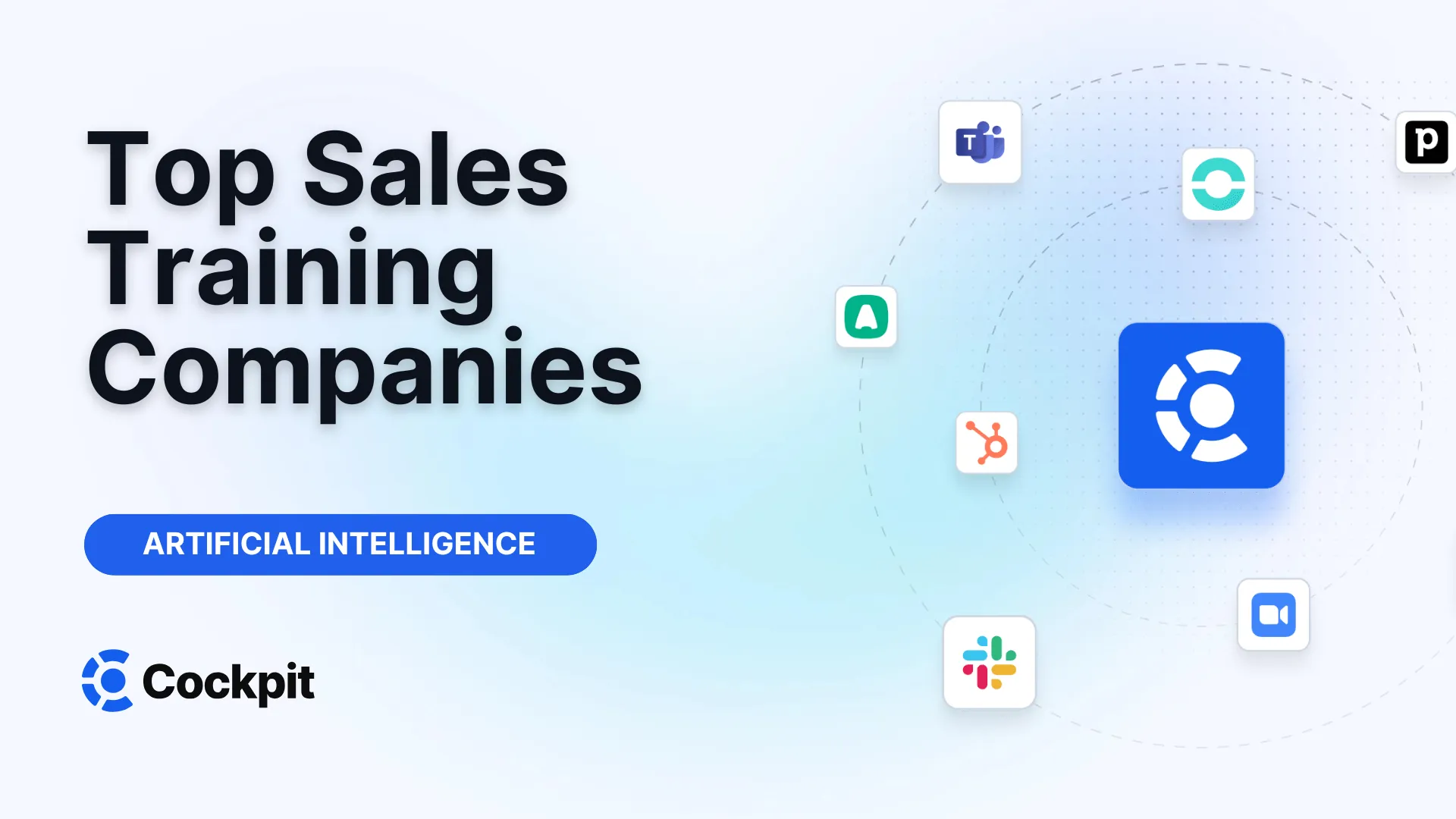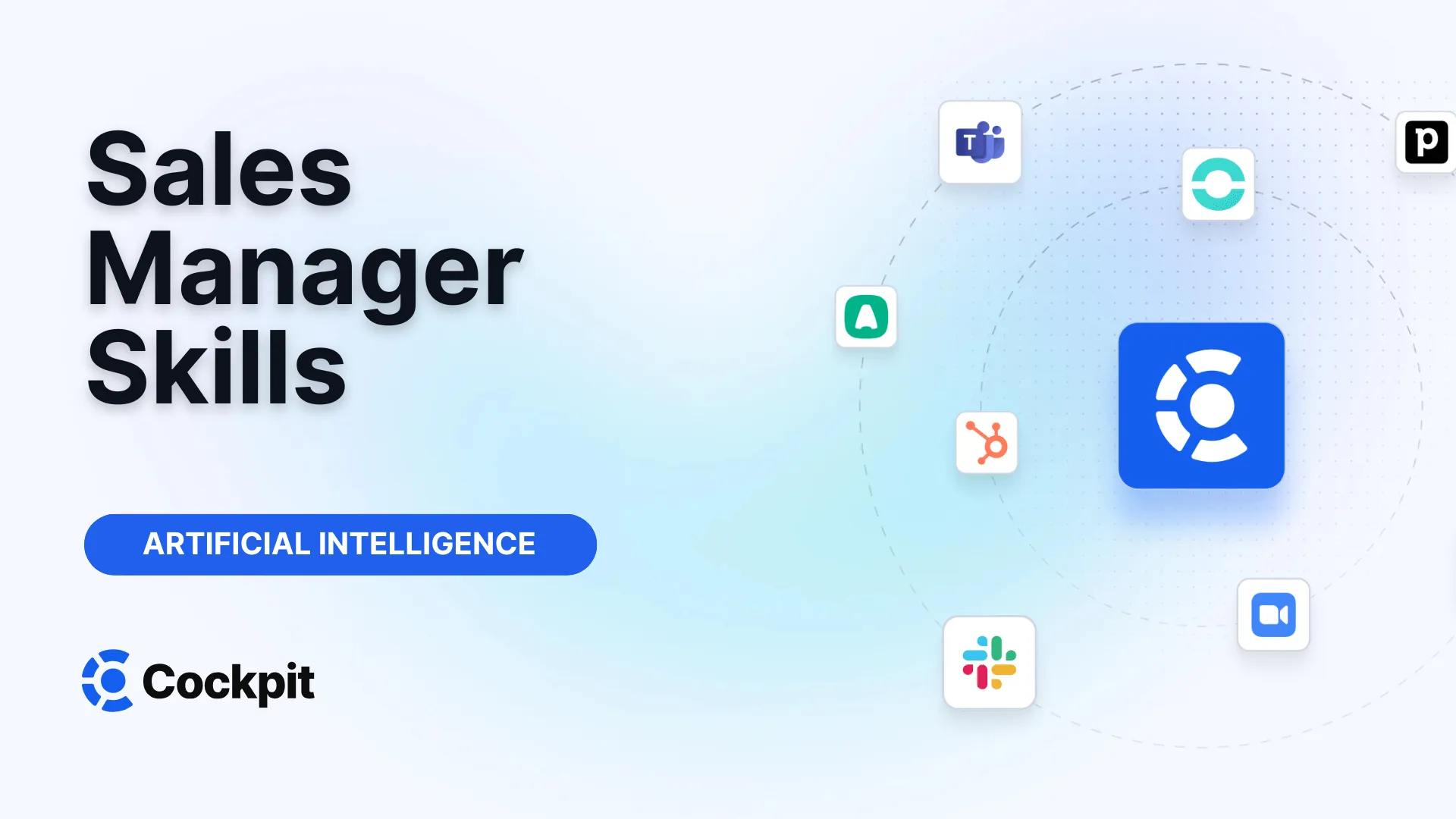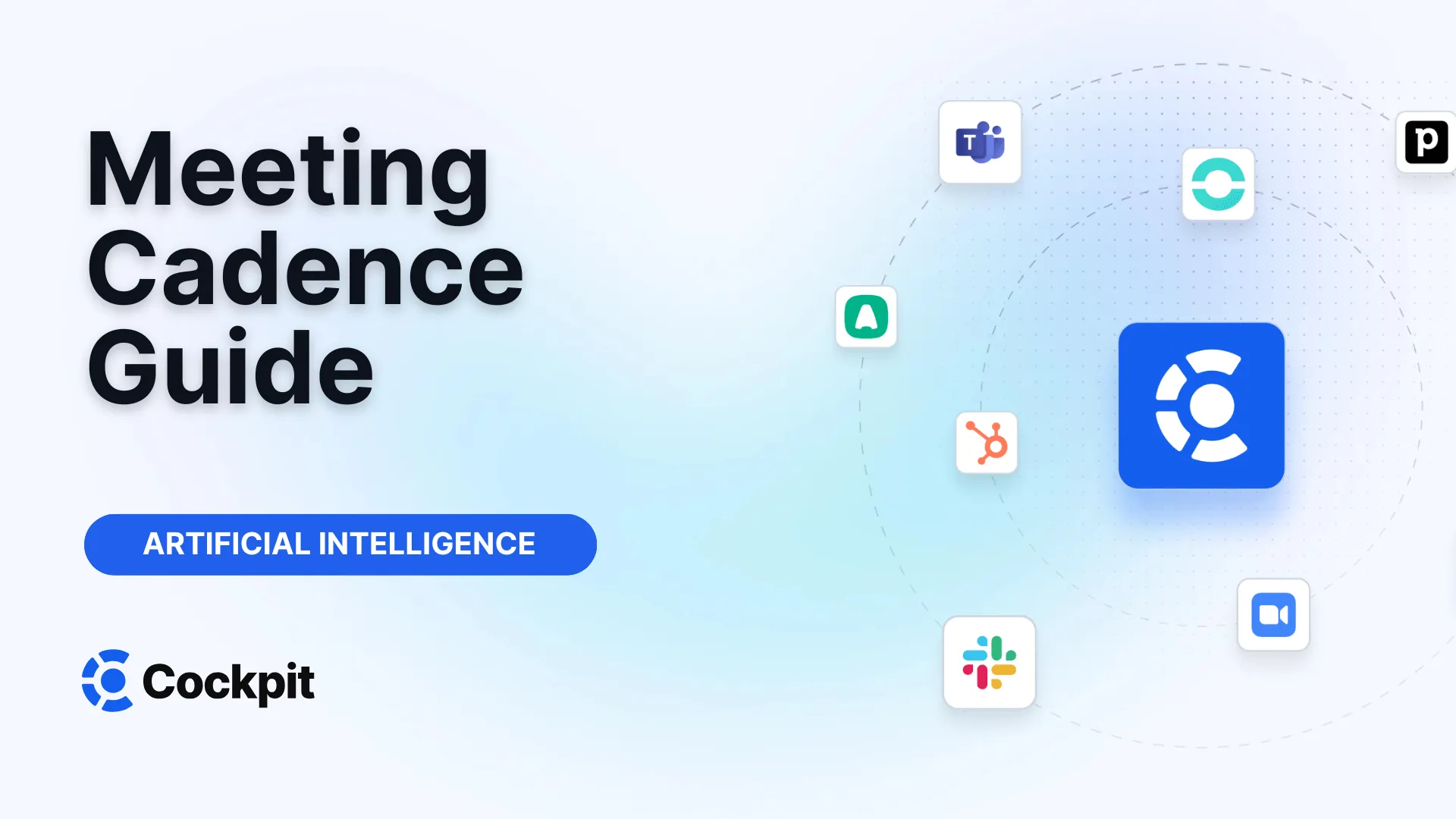Optimize your sales force in just a few clicks

Thousands of sales teams boost their performance with Cockpit. Why shouldn't you?
Explore CockpitSummary
Absolutely. Here is a proposed article optimized for the keyword "companies with the best sales training," respecting all your instructions and incorporating your company's information.
You wonder why, despite a talented team, your sales results remain stagnant? Are your salespeople struggling to differentiate themselves in a saturated market? The answer may lie less in your products and more in how you prepare your teams to sell. Investing in a top-tier sales training program is not merely an expense but a strategic lever to transform performance, retain your talents, and create a sustainable competitive advantage.
The challenge is not to find training but to choose the right one. Between proven methodologies, innovative approaches, and digital platforms, how can you identify the program that will truly boost your conversion rates? And more importantly, how do you ensure these new skills will be applied in the field and not fade away after a few weeks? This guide is designed to enlighten you on the best sales training companies and help you build a more efficient and resilient sales machine.
Why is investing in sales training crucial?
The idea that a good salesperson is "born" is a persistent myth. In reality, the highest-performing sales teams are those continuously trained. The numbers speak for themselves: organizations that implement a structured sales training program see a 19% improvement in their sales performance. Even more, investing in training generates an astonishing average return on investment (ROI) of 353%. It is one of the most profitable investments a company can make.
Beyond the numbers, the benefits of quality training are felt at every level:
- Increased performance and revenue: Better-trained teams navigate objections more efficiently, shorten sales cycles, and close larger deals. Companies that train their salespeople are 57% more effective than their competitors.
- Competitive advantage: In a world where products and services are increasingly similar, the way you sell becomes the primary differentiator. Training on the latest strategies, industry trends, and new technologies (including AI) allows your team to stay ahead. The top salespeople dedicate nearly 20% of their time to training.
- Talent retention and fulfillment: Investing in your employees’ development is tangible proof of your commitment to their success. Salespeople who feel supported and see a clear career path are more likely to remain and invest themselves over the long term.
How to choose the best sales training program for your team?
With so many options, selecting the right training partner may seem complex. To make the right choice, it is essential to start with an internal diagnosis. What are your biggest challenges? Do you want to improve prospecting, negotiation, key account management, or product demonstrations? Once your objectives are clarified, evaluate potential programs according to several key criteria.
- Specialization (Focus): Identify the precise needs of your team. Are you aiming to fill gaps in product knowledge, master a new sales methodology (such as Value Selling or Challenger Sale), or improve objection handling?
- Target Audience: A program designed for junior salespeople during onboarding will not suit experienced account managers seeking to refine complex negotiation skills. Ensure the content matches your teams’ seniority level and roles.
- Format and Accessibility: Options vary: in-person workshops, live virtual sessions, on-demand e-learning, or a hybrid approach (blended learning). Choose a format that fits easily into your teams’ schedules without disrupting their activities.
- Program Duration: The duration should align with your objectives. Some intensive programs last a few days, while others offer ongoing learning over several months to firmly establish new habits.
- Cost and ROI: Compare the program’s price with the value it promises. Assess whether the investment is likely to generate measurable returns in terms of improved sales performance, average deal size growth, or sales cycle reduction.
- Certifications: A recognized certification can not only enhance your team’s skills but also support career development, which is a powerful motivation factor.
- Provider Expertise: Look for reputable companies, with solid case studies and positive client reviews. A good provider will have proven experience in your industry.
Expert Advice
Do not stop at the training itself. The most important question is: "How will we measure the application and impact of this training?" Integrate conversational analytics tools from the start. Platforms like Cockpit allow you to create an "AI Playbook" to objectively track whether learned concepts (for example, asking the right discovery questions, presenting value) are truly used during client calls. This is the only way to connect training investment to tangible results.
The best companies offering sales training in 2025
Historically, giants like IBM and Xerox were renowned for their internal training programs, which shaped generations of elite salespeople. Today, the market has expanded with many specialized players offering innovative methodologies and approaches. Here is a selection of the most recognized sales training organizations known for their quality and impact.
Challenger
Based on the research of the bestseller The Challenger Sale, this methodology aims to transform salespeople into advisors capable of "challenging" their clients' thinking. Rather than merely responding to expressed needs, sellers learn to teach, tailor their pitch, and take control of the conversation to guide buyers toward a new vision of their own business.
- Focus: Disruptive sales methodology, differentiation, taking control of the sale.
- Format: E-learning, virtual sessions, in-person workshops.
- Audience: Salespeople, business developers, sales leaders, sales engineers.
Sandler Training
With its famous "Sandler Selling System," this organization focuses as much on behaviors and attitudes as on techniques. The approach is counterintuitive: it teaches sellers to reverse the traditional dynamic by rigorously qualifying opportunities and establishing clear rules from the beginning of the relationship. The goal is to avoid wasting time with unqualified prospects and focus on deals with real chances of closing.
- Focus: Sales methodologies, behavioral reinforcement, qualification.
- Format: Online, in-person, coaching, certifications.
- Audience: Salespeople, sales managers.
RAIN Group
Known for its consultative selling approach, RAIN Group offers dozens of customizable modules to create a tailored curriculum. Their programs cover all stages of the sales cycle, from prospecting to managing strategic accounts, emphasizing value conversations and mastering virtual selling.
- Focus: Consultative selling, virtual selling, strategic account management, negotiation.
- Format: Virtual, in-person, hybrid, self-paced.
- Audience: Sales professionals, sales managers.
ValueSelling Associates
As the name suggests, this company focuses on Value-Based Selling. The ValueSelling Framework® is a simple, repeatable methodology that helps sellers align with the customer’s buying process. The emphasis is on qualifying opportunities through the lens of value perceived by the buyer, which helps differentiate from competitors and justify pricing.
- Focus: Value-based selling, qualification, customer engagement.
- Format: Online, in-person, live virtual.
- Audience: B2B, B2C and B2G sales teams, managers.
Richardson Sales Performance
Richardson offers a very structured "Connected Selling Curriculum™," organized around four clear phases: building your pipeline, winning opportunities, developing accounts, and managing sales. This modular approach allows for very precise targeting of skills to develop, with adaptable content and short formats (videos, micro-learning) easy to consume.
- Focus: Consultative selling, agile prospecting, commercial storytelling.
- Format: Live virtual, in-person, digital learning.
- Audience: Salespeople, sales managers, business development teams.
SPIN Selling (Huthwaite International)
Developed by Neil Rackham, the SPIN methodology is a timeless classic based on the art of asking the right questions. The acronym SPIN (Situation, Problem, Implication, Need-Payoff) structures the discovery phase to help the seller deeply understand the client’s issues and build an impactful solution. It is fundamental training for mastering complex sales.
- Focus: Question-based selling, needs analysis, consultative selling.
- Format: Online, in-person, virtual workshops.
- Audience: B2B salespeople, sales managers, business developers.
Dale Carnegie
Heir to the principles of the famous book How to Win Friends and Influence People, Dale Carnegie training goes beyond simple sales techniques. It focuses on developing human skills (people skills), self-confidence, leadership, and communication. The goal is to build strong and authentic relationships based on trust, which is the foundation of any sustainable sale.
- Focus: Leadership, interpersonal skills, presentation, customer service.
- Format: Online, in-person, hybrid.
- Audience: All professionals, including salespeople and managers.
Note
Choosing a famous name is reassuring, but fit with your company culture is paramount. A very aggressive methodology like Challenger Sale can be counterproductive in a team whose strength lies in long-term client relationships. Take time to request demos and speak with trainers to ensure their philosophy matches your DNA.
Beyond external programs: strengthen internal training
The most common mistake is to consider training as a one-time event. Without continuous reinforcement, the famous "forgetting curve" wreaks havoc: participants forget up to 90% of what they learned within a month. The true ROI of training does not come from the workshop itself but from how new skills are integrated, coached, and measured daily. This is where technology becomes an indispensable ally.
Measure the real impact of training through conversational analytics
How do you know if your team truly applies the SPIN or ValueSelling methodology after training? Traditional sales reports won’t tell you. However, a conversational intelligence platform like Cockpit can. Our AI Playbook feature lets you configure trackers that automatically analyze every sales call. You can objectively measure:
- Methodology adoption: Are your salespeople asking the right "Implication" questions? Do they present value before price?
- Objection handling: How are the most frequent objections dealt with?
- Competitive messaging: Do your teams correctly position your solution against competitors mentioned by prospects?
These objective data transform coaching. Instead of saying "you need to qualify better," a manager can show a concrete example: "In this call, you missed digging into the client’s problem. Here is a clip from another call where the question was perfectly asked."
Create a culture of continuous and evolving coaching
Training should not rest solely on managers' shoulders. Modern tools democratize learning. With a platform like ours, you can:
- Create "best practices" playlists: Isolate the best moments from calls (a perfect demonstration, a successful negotiation, a brilliant objection handling) and share them with the whole team. This is the fastest way for newcomers to absorb good practices and veterans to get inspired.
- Accelerate onboarding: Give your new hires access to a library of real calls. They learn faster by listening to your best performers' conversations than by reading theoretical manuals.
- Automate feedback: Thanks to AI transcriptions and summaries, managers save precious time and can focus on high-value coaching. They can comment directly on specific call segments to give precise and actionable feedback.
By combining quality external training with an internal reinforcement platform, you create a continuous improvement loop. Training provides the "what" and "why," and tools like Cockpit provide the "how" and proof of application.
Ultimately, choosing a top sales training company is the essential first step. But true transformation happens when you equip yourself with the means to reinforce, measure, and sustain this learning at the heart of your daily operations. It is this alignment between training, practice, and coaching that creates sales teams not only performant but truly unstoppable.
FAQ on sales training
What are the best trainings for complex B2B sales?
For complex B2B sales involving long cycles and multiple decision-makers, consultative methodologies are the most effective. Turn to programs like SPIN Selling (Huthwaite), which excels at needs discovery; Challenger, to position yourself as a strategic partner bringing new perspectives; or ValueSelling Associates, to clearly articulate the value and ROI of your solution to different stakeholders.
How can the cost of sales training be justified?
Justification comes through measuring return on investment (ROI). Before training, establish key performance indicators (KPIs): conversion rates, average deal size, sales cycle duration, discount percentages granted. After training, track the evolution of these KPIs. An effective program should result in measurable improvement. For example, a 5% increase in conversion rate alone can justify the investment. Use analytics tools to show how applying new skills has directly contributed to these results.
Is a single training session sufficient?
Absolutely not. The market, customers, and technologies constantly evolve. A one-time training is a good impulse, but it must be embedded in a culture of continuous learning. The best organizations combine foundational training (onboarding, basic methodology) with regular skill upgrades and, above all, daily coaching based on real data. Learning is a process, not an event.
What are the signs that a team needs training?
Several warning signs should alert you. A stagnant pipeline, increased lost deals to competition, lengthening sales cycles, a systematic need to offer heavy discounts to close deals, or incoherent sales messages from one salesperson to another. If you hear phrases like "the prospect didn’t understand our value" or "we always lose on price," it is high time to invest in training.




